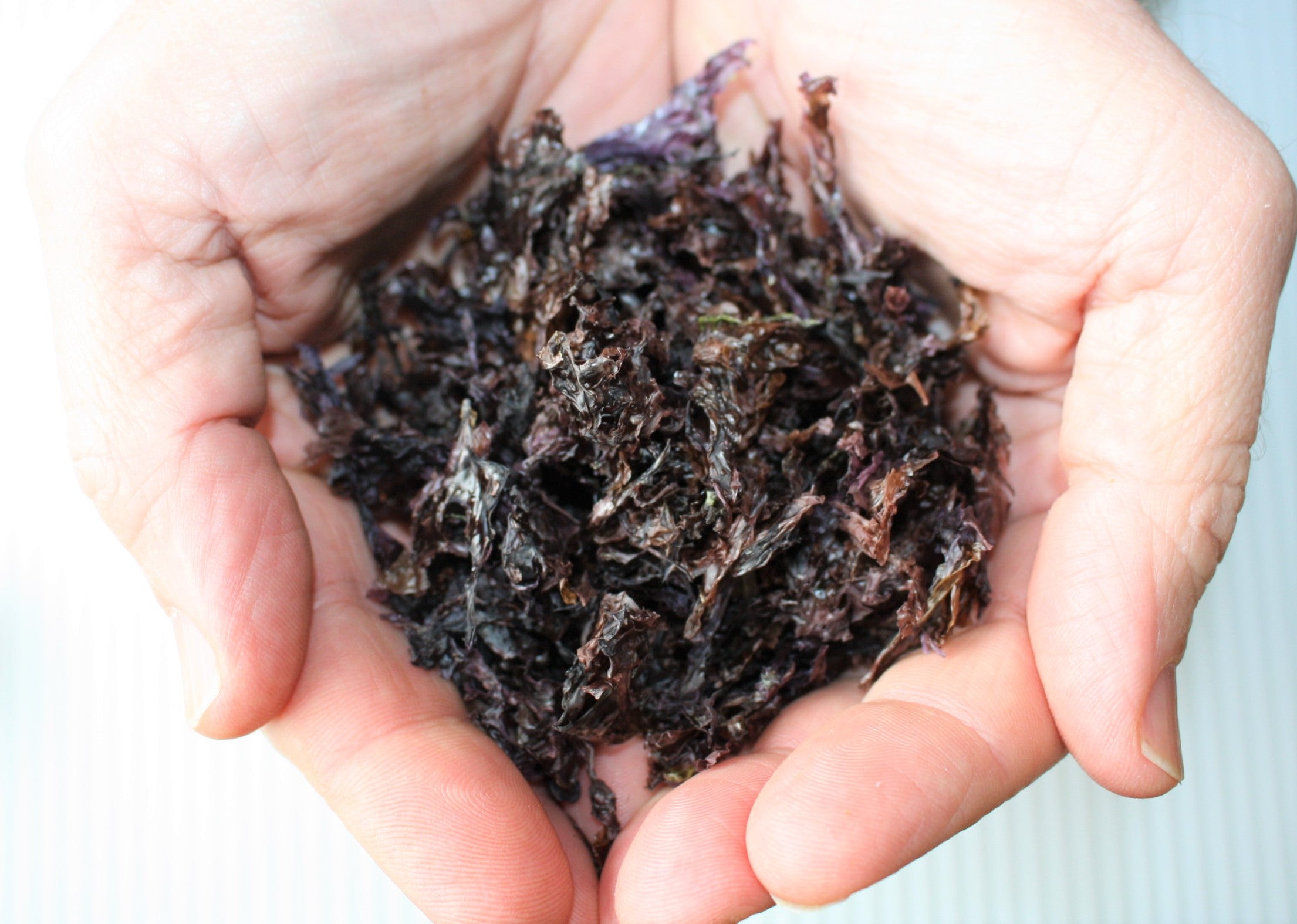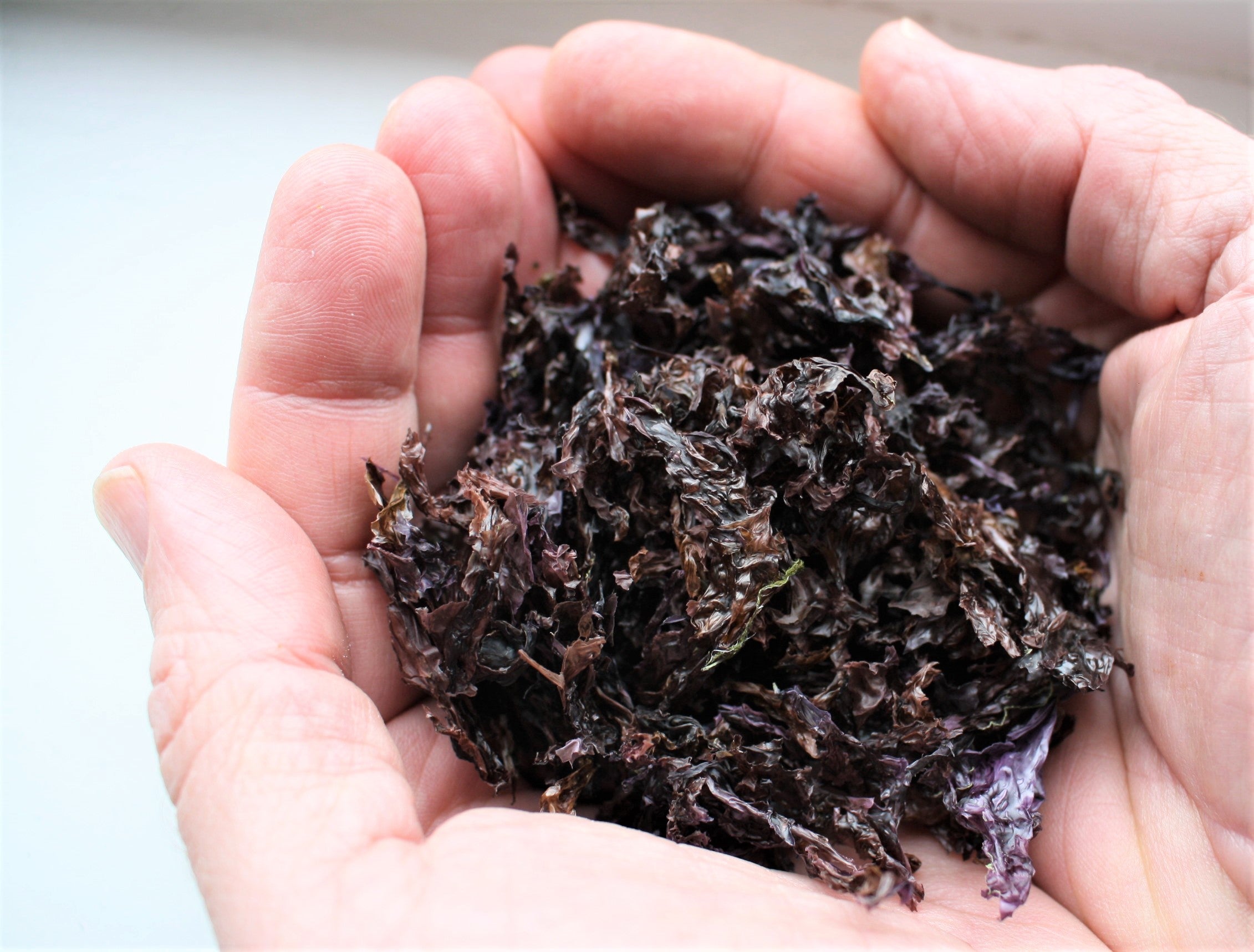In our opinion Sea Salt is better than rock salt because of the additional minerals in the ocean compared to what is now available in depleted soils. Here we delve into a little more about the different types of salt available, discuss why we prefer sea salt to rock salt and illustrate how salt is processed can make a difference! The ultimate is a sea salt blended with seaweed - read on to discover why!
What is Salt?
Salt is a crystalline mineral made from sodium and chlorine (NaCl). These two elements are essential for life. We cannot live without them because they contribute to numerous critical biological processes, including:
- Regulating the amount of water that’s in and around our cells
- Carrying nutrients into and out of our cells
- Helping the brain to function
- Helping the nerves send out electrical impulses
- Aiding digestion and metabolism
- Supporting adrenal function
- Maintaining and regulating blood pressure
If the elements that makeup salt are so important for our health, why does salt have such a bad reputation? Well, not all salt is equal - there is a significant difference between natural salt and the processed salt we buy to flavour foods. Three types of food-grade salt are available, and within these groups, several variations are available:
- Sea Salt
- Standard Table Salt - normally refined /processed
- Rock salt
Unprocessed Salts vs Refined Table Salt
We prefer unprocessed salt over refined salt. It can be helpful to think of salt, in the same way one thinks of sugar. Refined sugar has deficient levels of minerals and cofactors, which are helpful in helping the body metabolise sugar better. Without them, sugar is just calories. Processed salt is similar. Processed (or refined) industrial-grade table salt has removed all trace elements. It is pure sodium chloride, with an anti-caking agent and, in some cases, iodine added.
Unrefined salts, whether mined from the earth or harvested from the sea, contain a broad spectrum of trace elements, often in the same balance as are available in human blood. For the most part, the various grades of refined salt are all the same; chemically, most are greater than 99% sodium chloride, but the structure varies widely.
Sea Salt vs Rock Salt
Salt is everywhere on Earth, in the air, soil and water. Some salt is on the surface of the planet, the dried-up residue of ancient seas like the famed Bonneville Salt Flats in Utah. Salt can be mined, but we produce salt from seawater through evaporation in New Zealand because we don’t have salt deposits.
No iodine is available in rock salts because there are no iodine deposits in the soil. Rock salt occurs in crystalline form and is usually grey. Rock salt is often industrially iodised, bleached, and mixed with anti-caking agents. This is what is used to make table salt for food production.
Unrefined salts contain a broad spectrum of trace elements but in minute quantities. These include magnesium and potassium, which are necessary for health and help the body metabolise sodium better. The more sodium we eat, the more potassium and magnesium we need to maintain balance, which can’t be supported exclusively by what’s in the salt. Dutch researchers have determined that a low potassium intake has the same impact on your blood pressure as high salt consumption does. Striving for a diet rich in magnesium & potassium may help balance sodium intake.
On the other hand, sea salt is created by evaporating seawater. It is white and, in our opinion, much better quality because it naturally contains iodine, iron, sulphur, magnesium and many other minerals.
Some claim Himalayan Pink salt is healthier because it contains more minerals than unrefined salts. Whilst this is partly true (Himalayan salt contains phosphorus, bromine, boron, and zinc), other nutritionists claim the quantity of the minerals is so low it can’t make a significant difference to human health. Like all unrefined salts, Himalayan Pink salt is still 99% sodium chloride!
Why Do We Crave Salt?
Nutritionists claim that a craving for salt camouflages the real need – for a minerally richer diet. They are more likely to recommend a diet rich in vegetables and plants (the primary source of minerals for our bodies) than suggesting increased salt intake!
Seaweeds make an excellent alternative to salt.
Sea vegetables offer a very concentrated source of minerals, in some cases, up to 20 times the amount found in land vegetables for the same weight. Seaweeds have a salty flavour (depending on how they are prepared), satisfying the salt craving but providing a more decadent mineral offering. Additionally, seaweeds are a source of umami flavour, adding extra depth and flavour to meals.
Sea Salt vs Rock salt
We’ve gone the extra step - taken an unprocessed sea salt and blended it with seaweed for maximum flavour and mineral content. Pacific Harvest offers kelp sea salt or seaweed salt, which provides a range of nutrients and minerals you won’t find in processed table salt. Plus, iodine naturally occurs in our salt range, so you don’t need to look for salt that has been artificially iodised! Sea Salts provide the added nutrients our bodies crave, and when combined with a bit of extra seaweed, they also offer umami flavour, which adds depth and texture to a meal.

Swap your regular, chemically iodised table salt today for Kelp Salt and ‘kelp’ yourself! View our salt range here.




